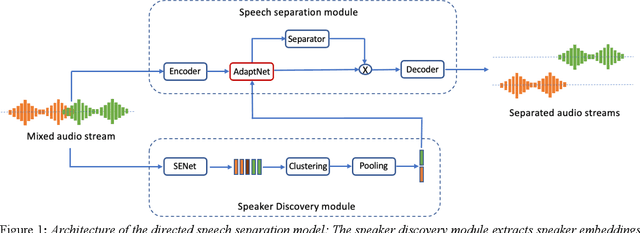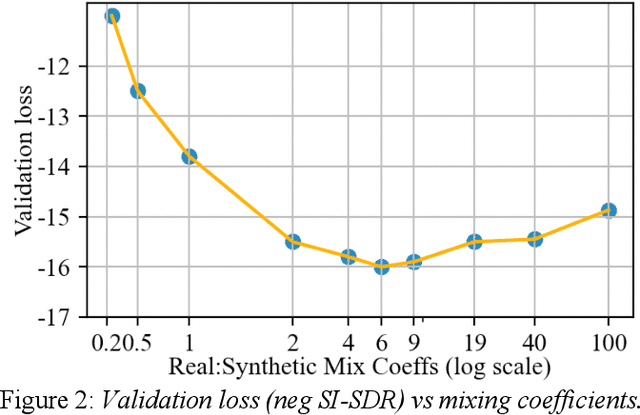Directed Speech Separation for Automatic Speech Recognition of Long Form Conversational Speech
Paper and Code
Dec 10, 2021



Many of the recent advances in speech separation are primarily aimed at synthetic mixtures of short audio utterances with high degrees of overlap. These datasets significantly differ from the real conversational data and hence, the models trained and evaluated on these datasets do not generalize to real conversational scenarios. Another issue with using most of these models for long form speech is the nondeterministic ordering of separated speech segments due to either unsupervised clustering for time-frequency masks or Permutation Invariant training (PIT) loss. This leads to difficulty in accurately stitching homogenous speaker segments for downstream tasks like Automatic Speech Recognition (ASR). In this paper, we propose a speaker conditioned separator trained on speaker embeddings extracted directly from the mixed signal. We train this model using a directed loss which regulates the order of the separated segments. With this model, we achieve significant improvements on Word error rate (WER) for real conversational data without the need for an additional re-stitching step.
 Add to Chrome
Add to Chrome Add to Firefox
Add to Firefox Add to Edge
Add to Edge